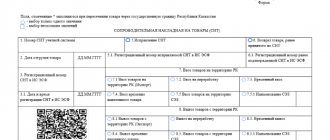Functions of the board of homeowners
Each of us is well aware of the abbreviation HOA, but few have thought about the main functions and responsibilities of this association. The main powers and competencies of the management body and its members are enshrined in Art. 148 Housing Code of the Russian Federation. If we turn to the rule of law, then the main function of the HOA is:
- practical implementation of decisions that were reached at the meeting of HOA members;
- operational management of all financial issues of the partnership, including accounting and reporting, planning expenses and income.
It should be noted that the responsibilities of the board of a homeowners association include powers aimed at ensuring that each of the residents and members of the collective association comply with current legislation and official documents adopted at the HOA level.
On what basis does the board act?
Let's look at conceptual questions. What is an HOA and why, within the framework of this article, we are talking about such a management organization. Let's clarify this issue.
A homeowners' association is a non-profit organization that was created from the residents themselves; in addition, the organization is registered as a legal entity, it is a full-fledged taxpayer and carries out the functions of improvement, maintenance and management of an apartment building.
The partnership is the most popular when initially choosing a management organization and there are a number of reasons for this. One of the most popular reasons for choosing and forming this organization is the opportunity for residents to independently form its composition.
At the meeting of owners, candidates in whom residents have the highest confidence are selected. In addition, given the fact that the residents of the house will be part of the board of the partnership, it means that none other than the residents of the management will be interested in performing their functions as efficiently as possible, waiting for the house to be ennobled and in proper condition. condition.
But who are the board members?
The legislation establishes that the partnership is formed from members of the legal owners of the premises.
But you must admit, if every issue related to improvement and expenditure of budgetary funds is brought to the attention of residents’ meetings, then it will have to be held very often, which is practically impossible, because each resident has his own job, and therefore will not be able to properly attend each meeting.
Therefore, the most proactive and trustworthy citizens are selected from among the owners, who can represent the general interests of the house and can independently make decisions in the interests of the residents.
When the management is created, the meeting of residents will meet much less frequently and only for very serious reasons.
In addition, such an important person as the chairman of the partnership is elected from among the board members, who is called upon to regulate all the activities of the organization and resolve the most important issues.
Find out on our website how to write an application to join the HOA.
Control over the timely payment of contributions by HOA members
No collective entity can carry out its activities without proper financial support. That is why the duties of the association include monitoring the payment of membership fees by all participants in the residents’ meeting. This power is enshrined in Art. 148, namely, in paragraph 4 of this rule of law.
It should be noted that making payments and other membership fees is one of the key responsibilities that falls on the shoulders of all HOA participants.
That is why the collective meeting must monitor the timely receipt of funds. For this purpose, specialized settlement accounts are drawn up, which make it possible to carry out constructive reporting to reflect the financial activities of the HOA.
Responsibilities to residents
Members of the board of the partnership, as well as the founders and other employees of this organization, have a list of duties established by law, namely the labor code, that they are obliged to fulfill to residents . Let us remind you that failure to fulfill duties can cost members of management not only re-election, but also penalties and other, not the most nice things.
Let's consider the main responsibilities of board members and other employees of the homeowners association :
- First of all, members of management must tirelessly comply with the requirements of the law, listen to it and not act beyond its limits.
- Board members must exercise control over the expenditure of budget funds.
- Members of management undertake to honestly prepare estimates of income and expenses not only for all board members, but also for other employees.
- Members of management are required to monitor the management of MKD.
- It is the responsibility of the organization’s board to hire workers to service the house, and, if there are reasons, to fire them.
- Board members are required to enter into agreements for the maintenance of an apartment building, as well as its operation and repair.
- Board members maintain so-called documentary registers, in which they report on everything related to expenses.
- They are obligated to bring controversial and important issues to the attention of the meeting of homeowners.
- If the charter establishes other duties, then fulfill them unquestioningly.
Read about the responsibilities of the HOA manager in our article.
Expenses and income of the partnership. Estimate
Financial planning is one of the fundamental powers that rests on the shoulders of HOA members. Competent persons draw up a plan for financial expenses and income for the year, which allows the collective meeting to most correctly distribute funds for the current needs of homeowners. For this purpose, an estimate is drawn up, which is approved at a meeting of members of the partnership.
For the preparation of financial statements and estimates, the following grounds may be taken into account:
- the distribution of budget funds that was carried out in previous years, as well as the percentage of effectiveness of such a designated purpose;
- the inflation rate as of the date of expected approval of the estimate;
- financial resources that may not have been spent from the HOA budget for previous reporting periods;
- technical condition of an apartment building, in particular, collective property, the maintenance of which requires the allocation of funds, etc.
In other words, the issue of financial planning is one of the most important in the sphere of competence of the members of the HOA of any apartment building. Therefore, increased attention is paid to this topic, and full control is exercised over such activities of the meeting.
How are controversial issues resolved?
controversial issues arise among members of associations and their employees , then these issues should be brought to a meeting of residents, or as it is called, a meeting and resolved by voting.
This rule is not established by law, but is certainly reflected in the charter of the partnership.
You can learn how to write a statement to the HOA about leaks, flooding, or the need for repairs and recalculation in our article.
Responsibility for holding a general meeting of members of the partnership. Other responsibilities of the HOA board
It is one of the responsibilities of the HOA and the need to hold meetings of all members of the partnership without exception. This is stated in paragraph 8 of Article 148 of the RF Housing Code. It should be noted that the procedure for holding such meetings is established by the charter of a particular partnership and cannot be violated. However, such competence of the HOA must fully comply with the requirements of housing legislation, namely, Art. 145-146 Housing Code of the Russian Federation.
The obligations we have listed in this article are not exhaustive. This list of powers of the HOA is considered open, as it can be supplemented with new obligations depending on the emerging needs of homeowners in multi-apartment buildings.
Thus, we can conclude that HOAs are one of the mechanisms for ensuring the normal order of collective housing in the territories of multi-apartment buildings, which can only be achieved through the development of specific norms and rules of conduct for homeowners.
Author of the article
What laws govern it?
Let's consider the legal regulation of homeowners' associations. Of course, the activities of management were not invented by the members of the partnership themselves; the board has long been established by law and is an integral part of the management organization .
That is why, when it comes to leadership, it should be remembered that there are many regulations that enshrine their activities at the legislative level.
Of course, the primary regulatory act that regulates the activities of the board and the HOA as a whole is the Housing Code.
It is this normative act that is capable, one way or another, of regulating the relationship between management and residents, with employees in this organization.
In addition, it regulates all the assigned duties and responsibilities of the owners on the board, and they have enough such responsibilities.
Also, many aspects that are important for the activities of the board are contained in such a local regulatory act as the charter of the association of legal homeowners.
This act regulates issues related to the activities of this organization, the election of citizens to leadership positions and other important aspects, including the issue of remuneration for their activities.
If you want to get as much information as possible about what the board is and how it is formed , we strongly recommend that you refer to these regulations.
Registration procedure
HOA members must select an executive body that will prepare documents for the tax authority.
State registration involves filling out a special application and signing it in front of a notary.
The documents are submitted to a specialized tax office and must include the charter, minutes of the general meeting and a receipt for payment of state duty. Registration may result in the issuance of documents or refusal. In the latter case, the refusal can be appealed
The organization has the right to enter into relations with counterparties, and its head to sign documents only after its registration is completed.
Author of the article
What are the differences between TSN and HOA?
The civil legal status of a partnership of real estate owners allows them to voluntarily organize such associations for the purpose of using, owning and disposing of the common property of an apartment building (MKD). As in the case of HOAs, the activities of TSN are non-profit. It can be created not only by apartment owners, but also by owners of private houses, garages, office and other non-residential, commercial real estate, as well as summer residents.
Unlike an HOA, TSN provides greater opportunities to owners, namely:
- The object of management can be any real estate, not just apartment buildings;
- Mandatory licensing of activities;
- In addition to managing the apartment building, ensuring the operation of its utility systems, it is possible to engage in entrepreneurial activities in relation to the objects of common property of the apartment building, and, if necessary, additional construction of such objects;
- In addition to individuals, members of TSN may be legal entities and associations;
- A simplified taxation system is not allowed.
TSN has additional opportunities; the activities of such an organization are broader in comparison with HOAs. Such a partnership can be created not only by the owners of one apartment building. Both yards and owners of any other real estate, which will be managed by one legal entity and not several, can unite under such a non-profit organization.
Activities of the board and HOA
In addition to administrative work, the HOA must actively interact with residents, informing them about its activities. Owners have the right to know about any actions taken with the house, as well as to receive all possible assistance regarding their property.
Issuance of certificates
The partnership is obliged:
- issue certificates containing information about family composition;
Family composition certificate form - prepare room-by-room extracts;
- provide conclusions and documentation for MKD;
- draw up acts relating to real estate (about flooding, damage to property, etc.).
If citizens who are members of an HOA refuse to fill out documents for a tenant with debts, then this is a clear violation of his rights. The victim retains the right to file a complaint to the general meeting or the board.
Penetration into residential premises
Persons who are members of the HOA have access to common areas and technical premises in the house. They have no right to enter the apartment without permission or demand entry into the living space.
Important! Visiting someone else's apartment without the consent of the owner is possible only after obtaining court permission, and it is possible only in the presence of FSSP employees. More often the procedure is carried out to collect debt.
Rights and obligations of the HOA
Penalties
If residents do not pay utility bills on time, then HOA representatives have the right to charge a penalty. In paragraph 14 of Article 155 of the Housing Code, penalties can be applied if there is one day of delay. One month after the date when the payment was due, the penalty is calculated daily:
- 31–90 days (1/300 of the Central Bank refinancing rate);
- more than 90 days (1/130 of the Central Bank rate).
Any debt is collected only through legal proceedings.
Article 155 of the Housing Code of the Russian Federation “Payment for residential premises and utilities”
Acceptance of new members to the HOA
According to Article 143 of the Housing Code, in order for a citizen to be accepted into a partnership, he must write a corresponding application. No contract is required.
Important! Automatic entry into the HOA is not provided, even if the former owners of the property were its participants.
Article 143 of the Housing Code of the Russian Federation “Membership in a homeowners’ association”
Working with debtors
Public shaming is one of the effective methods of working with debtors. As an influence, the chairman of the HOA posts lists of violators.
Despite the doubts of the residents, by doing this, he does not violate their rights if he does not indicate personal data in the list. Therefore, the lists are impersonal: they indicate the apartment number and the amount of debt.
Read also: Law on the Prosecutor's Office of the Russian Federation
Salary of the chairman of the HOA
From a legislative point of view, an employment contract is not concluded with the chairman, so he cannot claim payment.
At the same time, his activities can be encouraged financially in the form of remuneration. The amount of payment is regulated by the members of the board and the general meeting. After the decision is made, the information is included in the partner’s Charter, on the basis of which the calculation is made.
Often the amount is proportional to the volume of work performed and is presented as a share of its cost.
There are no regulations governing the legality of the accrual of funds to the chairman’s account, but for the purpose of verification, it is possible to create an audit commission that will compare the partnership’s statements and real financial accruals.
Requirements for the chairman of the HOA
The main constant requirement for a candidate is to own an apartment in a given building. Advantages are given to persons who have received a higher education and also have experience in management.
Chairman of the HOA
Among personal qualities, comprehensive development, the ability to achieve goals, and knowledge of human psychology are welcomed. The chairman must be distinguished by good health and the ability to resolve conflicts both with residents of the house and with government organizations.
Important! The position of chairman implies a high moral burden: a citizen must be able to protect the interests of residents within the framework of the law and resist public opinion.
pros
Every non-profit organization has its pros and cons. TSN is also no exception to this rule. Although this organizational form is quite young, legislators have worked hard on its creation, using experience with HOAs and other similar organizations.
The main positive points in this form can be identified as follows:
• as noted above, in TSN you can dispose of not only common property from residential properties, but also other various types of real estate. Thanks to this, for example, owners of garages or warehouses can unite into these partnerships;
• the second positive point follows from the first - this is an increase in the efficiency of using common property. This is expressed by the fact that now uniting into similar communities, the owners of the same warehouse premises will be much more effective in monitoring the common property in the form of the adjacent territory or objects located on it. When merging, the question of maintenance responsibilities will no longer arise, and funds from the established fund will be used to improve the common territory;
• the third plus is integrally related to those mentioned above - this is the ability to rent out territory and other common real estate objects that are within the joint jurisdiction of all participants. Rational use of such objects allows you to increase income, which can be directed both to improving the conditions of the common territory and property on it, and divided in equal shares among all community members.
HOA Charter as the main document
The entire list of powers available to the HOA must be listed in the Charter of this organization. This list, for example, may include permission to carry out reconstruction, make changes to the local area in the form of parking for cars, etc. All rights of this organization listed in its Charter cannot conflict with the content of the Housing Code. They can only serve as a supplement and expansion of its basic provisions in specific situations.
The implementation of most rights by the board of the association is carried out in a working manner - rent is calculated, funds are distributed among bank accounts, and minutes of the board of the HOA are maintained. These actions relate to the current work. Compliance with the legality of all the mentioned operations is monitored by a special commission, called the audit commission, consisting of three to four people. Its composition does not include members of the board or other employees of the HOA.
If major changes are required (for example, to reorganize the structure of the HOA, change the ratio of funds distributed among various funds, refurbish the building), the board is required to organize a general meeting of all residents and put the issue to a vote. The HOA will receive the right to carry out the declared activities only if it receives a majority of positive votes.
Responsibility
Neither the Housing nor the Civil Code specifies what kind of responsibility the members of the partnership bear for their actions (or inaction), as well as the chairman and members of the board. But this does not mean that the activities of the HOA are not controlled in any way and violators cannot be held accountable.
Note! As a rule, specific punishments for certain offenses are prescribed in the Charter of the partnership, or it contains the note “in accordance with current legislation.”
General civil liability arises for the following offenses:
- Negligence – for example, if a board member did not notify residents of an upcoming meeting at least 10 days before the event.
- Fraud - for example, false documents about the number of owners of the premises or about the readings of common building meters.
- Misappropriation or embezzlement - malicious misdistribution of funds from the general or reserve fund
- Misrepresentation or deception, including of the general meeting.
- Official forgery.
- Exceeding authority (this includes posting lists of tenants of debtors, and entering an apartment without the permission of the owners).
Reference! All members of the HOA, including the chairman and representatives of the board, bear financial responsibility for their actions. The amount of damage is determined using a special act, in the preparation of which, if necessary, a professional appraiser is involved.
If an emergency occurs in an apartment, resulting in material damage not only to the owner, but also to neighbors, the responsibility of the residents and the association is differentiated, depending on what caused the accident .
For example, if an apartment flooded due to a break in a pipe belonging to common property, the HOA will be responsible for losses, since, according to the Rules for the maintenance of common property, all plumbing belonging to this category must be systematically checked.
If the flood of the apartment and neighbors occurred due to broken pipes that are not related to the common property (for example, a faucet burst in the kitchen), the HOA will not bear any responsibility for the flood.
In addition, liability in specific situations involving wrongdoing may be described in the Articles of Association of the partnership . For example, if fraud is discovered, the chairman will be required to pay a fine to the HOA.
What is regulated
The main activity of the partnership cannot be making a profit, however, the organization must be formalized and registered properly - with information entered into the register of legal entities and registration with the Federal Tax Service.
HOA is the most convenient form for apartment buildings, since the residents themselves directly influence the quality and volume of activities carried out for the maintenance and repair of common property and the local area. It is not for nothing that new houses that have just been completed immediately choose the form of HOA management. The decision to create a partnership is made jointly, at a general meeting of the house, based on a majority of votes recorded in the minutes of the meeting.
The work of the organization is regulated by the basic norms of federal legislation:
- The Housing Code, as amended on March 1, 2005, the provisions of Section 6. The main articles useful in creating and regulating the activities of HOAs are defined by Art. 135-152.
- Law No. 7-FZ, regulating the creation and operation of non-profit structures.
- Article 30 of the Constitution establishes a voluntary procedure for the formation of a partnership based on applications submitted by the owners.
What rights and powers do they have?
Board and founders
The board of the partnership and its founders are officials who, in addition to a wide range of responsibilities, have the same range of rights.
Let's look at the rights that these subjects have :
- They have the right to decide on the expenditure of budget funds for the needs of the house and its maintenance.
- Conclude agreements for the maintenance and management of an apartment building.
- Determine estimates of income and expenses based on the budget.
- Take advantage of credit offers within the organization provided by banks.
- Transfer money to employees for work performed.
- Receive rewards for work done.
- Conclude deals for activities necessary to maintain the home.
- Use common property.
- Modify common property as part of the management of an apartment building.
Find out on our website how to complain about the work of your HOA and whether you can leave it.
Members
Let's consider the legal status of the members of the partnership, which is determined by the labor code:
- These persons have the right to receive timely and comprehensive information about the activities of the partnership and the expenditure of budget funds.
- They have the right to make demands on the partnership regarding the quality or other aspects of the services provided.
- They have the right to get acquainted with documents, including accounting.
- They have the right to independently organize general meetings of homeowners to discuss issues of concern.
- They have the right to demand changes to the organization’s charter.
Read our articles about reorganization, liquidation or bankruptcy of HOAs.
What to do if you don't fulfill your duties
If a conflict arises with the chairman, it is recommended to attempt a peaceful resolution of the dispute. To do this, residents need to draw up a collective appeal with demands.
In order for the claim to be justified, evidence (witness testimony, video or photographs) must be attached to the documents.
Sample complaint against HOA
If the residents' request was not satisfied, then a procedure for re-electing the head is carried out. For this purpose, evidence of the chairman’s incompetence is collected. It is possible to organize an independent audit, to which the head is obliged to submit. Based on its results, a decision will be made on the effectiveness of the person’s work.
In addition to the general meeting, it is possible to file a statement of claim in court to receive compensation for damage caused.







